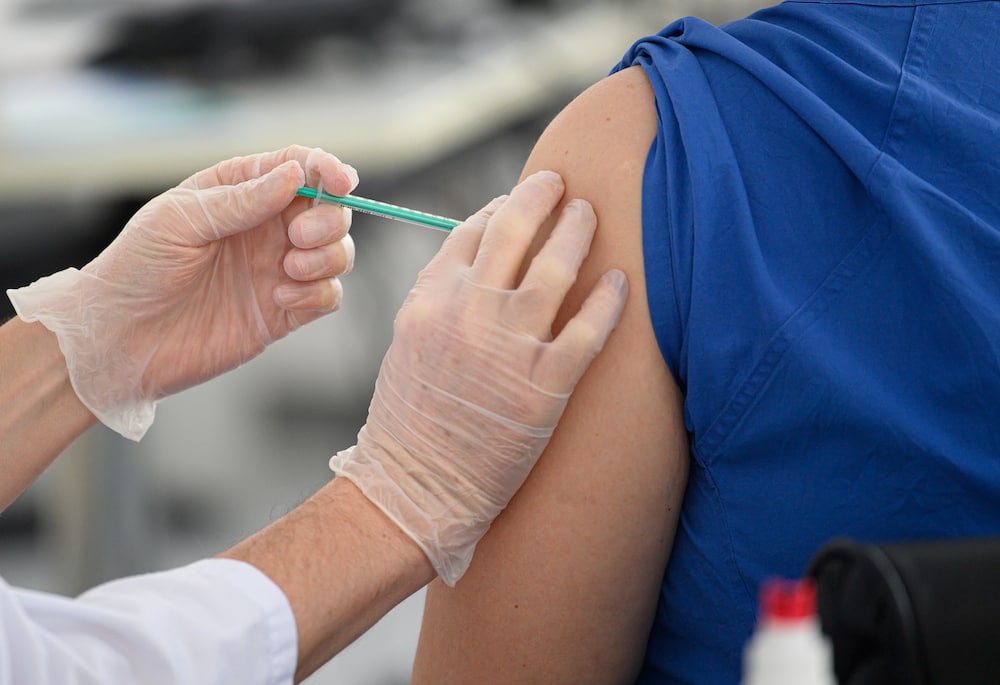As Australia rolls out the COVID-19 vaccine, policymakers are facing a complex bioethical question: should they pressure unwilling people to accept the vaccine and make it compulsory?
Bioethicist Dr Xavier Symons studies issues of choice in healthy care. He believes compulsory COVID-19 vaccines will probably be unnecessary and could be counter-productive.
New indications from the UK experience show enough people are voluntarily taking up the COVID-19 vaccine to render compulsion unnecessary and inadvisable, he said.
To wipe out a disease in the community, a sufficient level of herd immunity must be achieved. The level of coverage required for herd immunity depends on the contagion rate of the disease. For measles it is 95%, for polio about 80%. Scientists do not yet know the level required for COVID immunity – especially with newly developing strains – but it is clear that if a significant chunk of the community refuses vaccination, COVID will remain a risk.
In policy terms, the need for herd immunity means governments need to make a choice as to whether to make vaccination mandatory. But Dr Symons advises mandatory vaccination may not be a good idea.
For more related news:
- COVID-19 Pfizer vaccine will reach the ACT next week
- PM flags coronavirus suppression, vaccine as key priorities
- ACT’s rapid COVID-19 vaccine program ‘not a matter of turning up to the GP’
“Ethically we shouldn’t coerce people into doing something they don’t want to do without a very good reason, and it is becoming clear that coercion is not necessary. Persuasion which addresses people’s real concerns empathetically is being shown to be effective.”
Survey data published in January 2021 found a third of Britons were hesitant about accepting a vaccine. But now vaccination has rolled out, the vast majority of those offered have accepted the vaccine. Rates of vaccination stand at between 83% and 95% in the population over 75, which has so far been offered the vaccine.
Dr Symons said Australians had a generally better rate of vaccine acceptance, with only about 7% currently saying they would not have a COVID vaccine.
“We can expect that projected rate of refusal to go down when the vaccine arrives, probably quite dramatically based on the UK experience.”
He said introducing sanctions could cause a backlash and result in less co-operation with the vaccine program.
Under the “No job, no pay” policy Australians who refuse childhood vaccination without medical or religious reasons are ineligible for certain benefits. But Dr Symons said the COVID situation was quite different from childhood vaccination.
“Childhood vaccination has a very long history to demonstrate its safety. We need to understand that people who are hesitant about the COVID vaccine have good reasons. They are afraid the vaccine has not been sufficiently tested. Every day that passes we are going to get more and more evidence of the safety of the COVID vaccine. Rather than using a big stick, we need to use this evidence to persuade people of the value and safety of the vaccine.”
While Dr Symons is opposed to sanctions that would require Australians to have the vaccine to access certain benefits or places, he does see there may be a place for them in managing travel.
“It would seem to be reasonable for the Government to require people to have a vaccine in order to travel, particularly if they are going to a COVID hot spot.”



